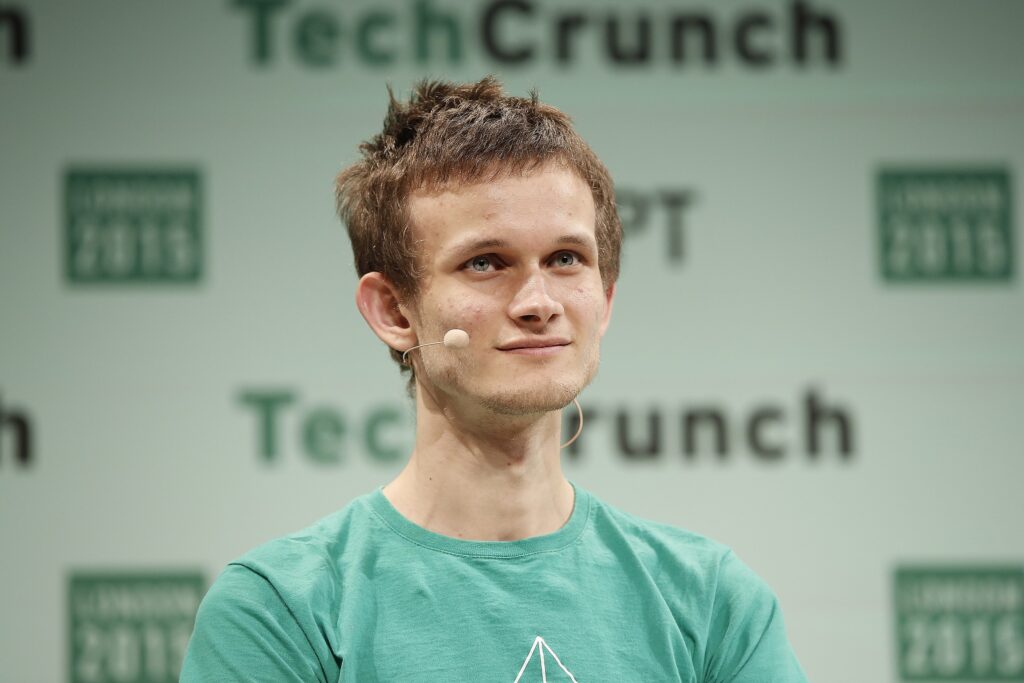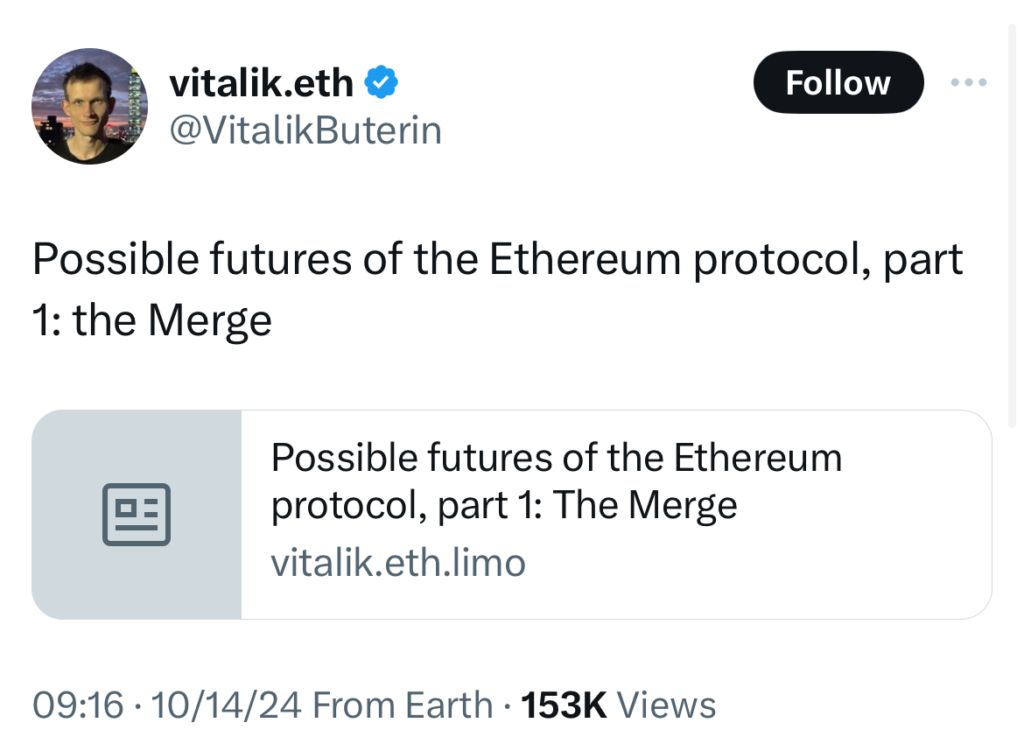Vitalik Buterin shared his thoughts on Ethereum’s future post-merge, highlighting potential advancements in transaction speed, security, and solo staking accessibility.

After the eagerly anticipated “Merge,” Vitalik Buterin, the co-founder of Ethereum, expressed his thoughts on the protocol’s current condition and potential future development on social media.
In a comprehensive blog post published on October 14, Buterin identified several critical areas where Ethereum could experience substantial progress, such as enhanced security, increased accessibility for solitary stakers, and faster transaction speeds.
Reflections on the Post-Merger
The Ethereum “Merge” signified the transition of the protocol from proof-of-work to proof-of-stake. Buterin described the event as both “long-awaited” and “hard-earned,” but he also acknowledged that there are still significant areas in which proof-of-stake requires development.

Ethereum’s future primarily focuses on reducing the time required to complete a transaction, as per Buterin.
Presently, Ethereum is the most actively trafficked blockchain network, and the finality process can take approximately 15 minutes. This delay can be frustrating for users. Congestion may result from this delay.
Buterin recommended that solutions such as single-slot finality be investigated, as they can significantly reduce transaction time. This would enhance Ethereum’s overall user experience and increase its competitiveness with other blockchain platforms.
In July, he had previously suggested the concept of single-slot finality.
Buterin also addressed the issue of increasing Ethereum’s accessibility to a broader audience. The current staking requirement of 32 Ether is a deterrent to numerous individuals who wish to engage in the network.
Buterin suggested that the minimal staking amount be reduced to 1 ETH in order to encourage a greater number of individuals to participate in Ethereum’s security and governance.
Ensuring the network’s security
Buterin underscored the significance of safeguarding Ethereum from prospective attacks. He proposed implementing a cryptographic technique known as single secret leader election, which would impede the ability of adversaries to disrupt the network.
In addition, Buterin recommended that the protocol’s resistance to quantum computing threats be enhanced, the quorum threshold be increased, and the recovery from 51% assaults be improved. This could present a substantial challenge in the future. Transaction confirmation timing should be accelerated.
Ethereum is preparing for the Prague-Electra (Pectra) upgrade, which is expected to be implemented in the first quarter of 2025. Buterin has provided a more comprehensive perspective on how to enhance the network.
